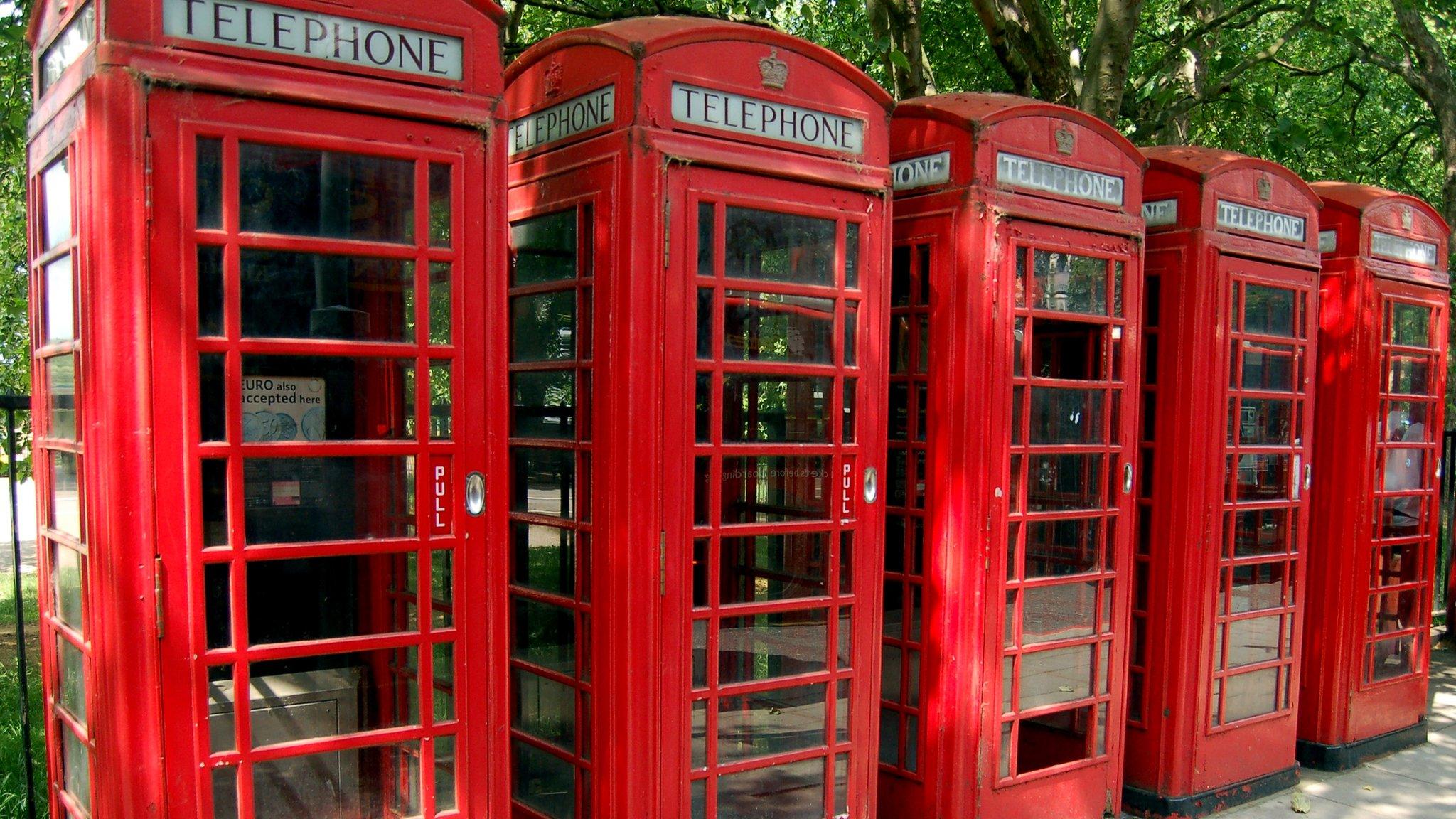Councils block 'ugly and unwanted advert space' phone boxes
- Published
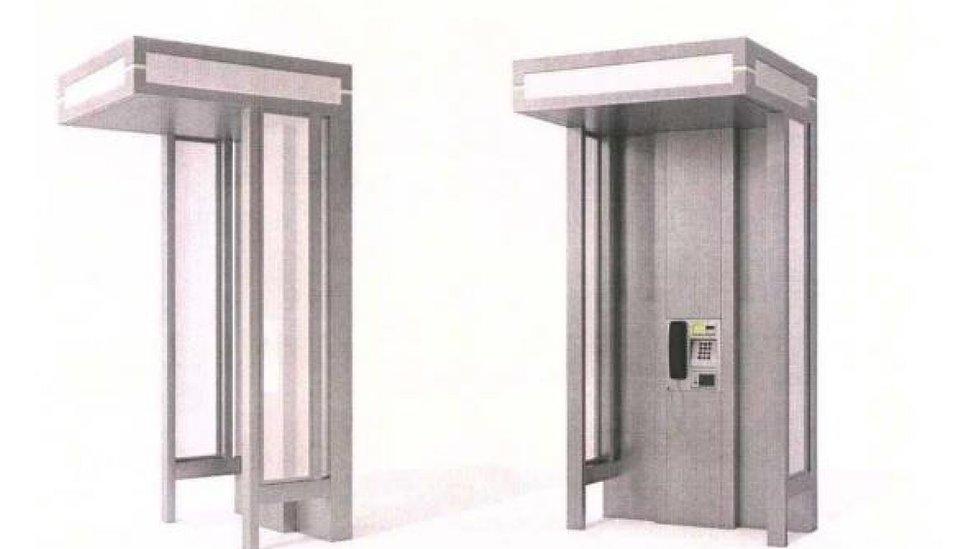
Conventional planning permission is not required for new phone boxes
Councils are fighting plans for hundreds of new "ugly and unwanted" phone boxes while they seek a change in the law.
Westminster Council has objected to plans for 128 new boxes since January, including 80 from Maximus Networks Ltd.
Birmingham and Manchester councils say that the boxes are effectively little more than advertising boards.
They say they cannot stop them as planning permission is not needed, just an Ofcom licence.
Maximus Networks said it was offering "a truly useful" public service.
Three cities have had 301 applications for new phone boxes in 12 months - 158 in Westminster, 104 in Birmingham and 39 in Manchester.
Councils can object to Ofcom's approval of the boxes but only on two grounds: location and design.
A Department for Communities and Local Government spokesman said it was considering the matters raised by councils.
'Quick buck'
Each Maximus Networks box would provide 1.3m x 2m of advertising space which does not need local authority consent.
Westminster Council said the boxes, which the company planned to install on Oxford Street, Victoria Street and Baker Street, would offer no wi-fi or internet connectivity.
"This scheme will create ugly and unwanted advertising space," Councillor Richard Beddoe said.
However, Maximus founder Ashley Smatt said: "We believe what we have planned will be the envy of the world.
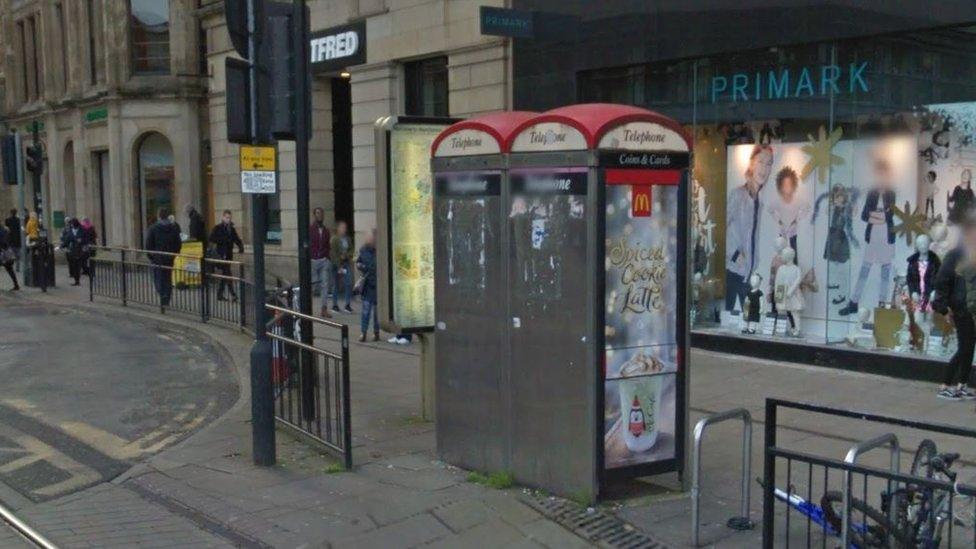
Only drug dealers and people urinating use the phone boxes in Piccadilly Gardens, councillor Pat Karney said
"There are currently around 66,000 calls a week from phone boxes across the UK and we believe there is a demand for this."
Councillor Daniel Astaire, of Westminster Council which rejected another operator's proposal for 48 boxes on Tuesday, said companies "are trying to make a quick buck" with "ugly hoardings on some of our most iconic streets".

A company needs a licence from telecom regulator Ofcom to install a phone kiosk
The licence offers permitted development rights and does not need planning permission
Councils have limited powers to prevent construction, particularly on previous sites
Pavement billboards or advertisements usually require an application for advertisement consent
Birmingham City Council deputy leader Ian Ward said "open access wi-fi and widespread mobile phone use" made the kiosks "redundant".
But he said he anticipated more coming, "because city centres offer a highly lucrative market for advertising and there's no restriction on how many can be installed".
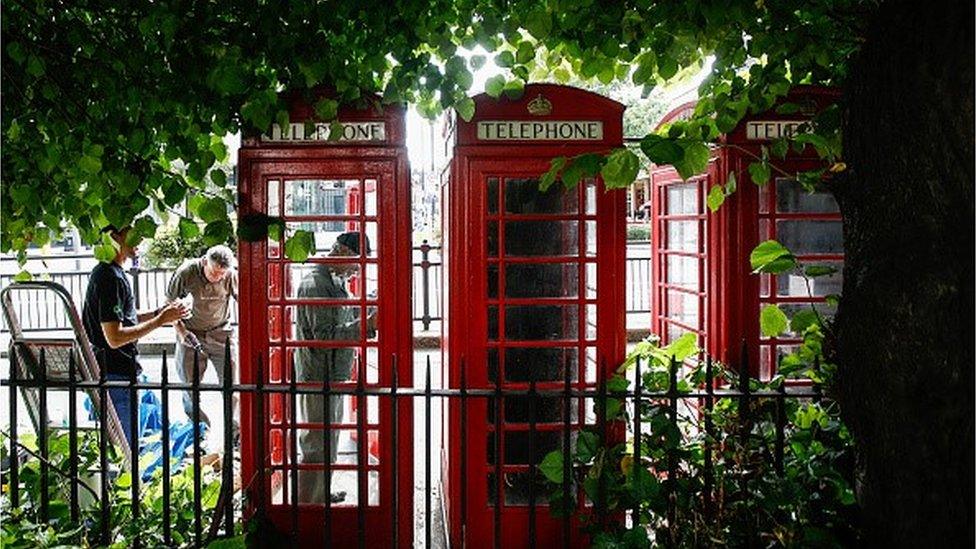
The proposed telephone boxes will look somewhat different from the iconic red phone box
Ofcom said it had no evidence Maximus had breached any obligations but it would "be concerned" if permission was "used to provide advertising space under the cover of a largely unwanted public call box service."
Councillor Pat Karney, of Manchester City Council, said the only people he had seen using phone boxes "are drug dealers, particularly around the Piccadilly Gardens area".
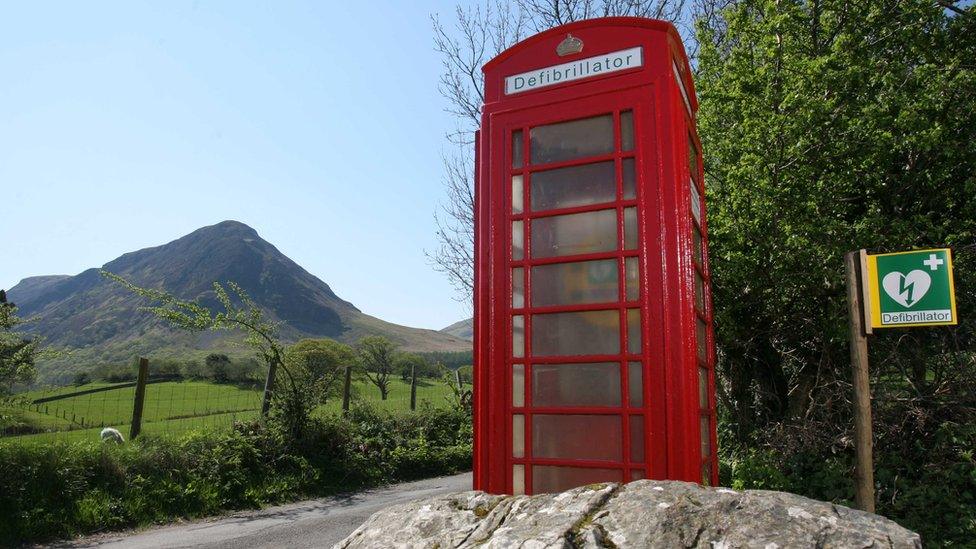
BT has been running an "adopt a kiosk" scheme - this one in Loweswater, Cumbria, was the 3,000th to be taken over and houses a defibrillator
Redundant kiosks are increasingly being put to inventive uses, from defibrillator storage to miniature art galleries.
There are about 46,000 remaining public kiosks across the UK including about 8,000 traditional red ones.
About 2,500 of those in England are listed, according to Historic England.
- Published14 March 2017

- Published1 January 2017

- Published14 December 2016
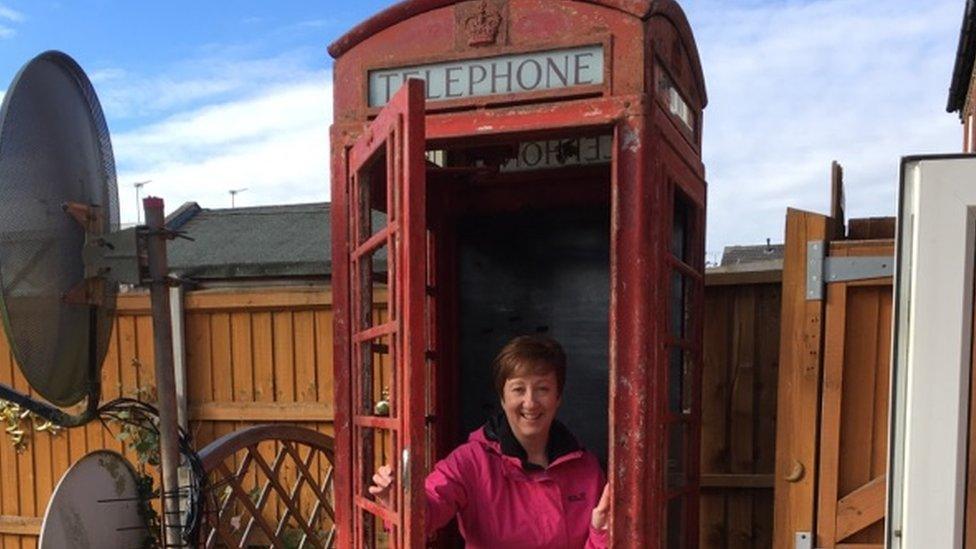
- Published16 February 2016
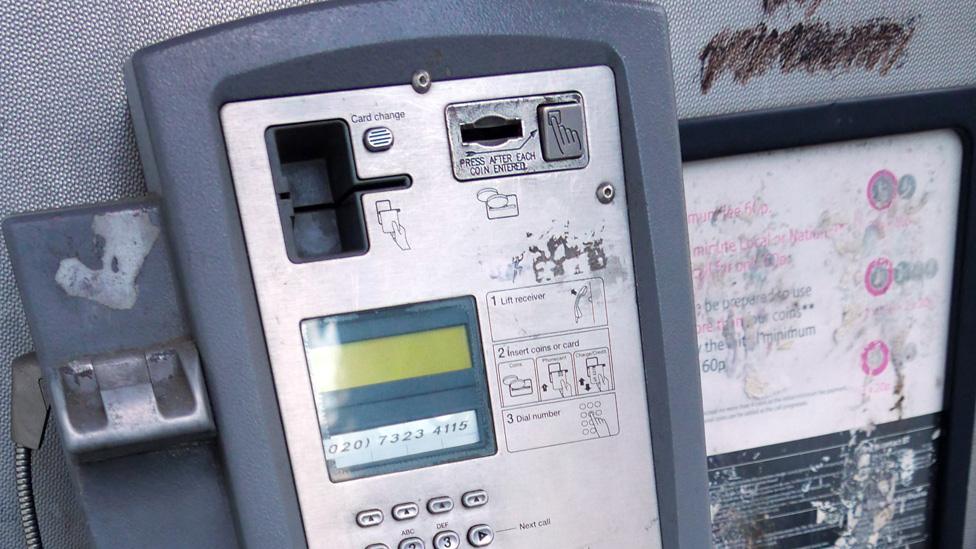
- Published24 April 2015
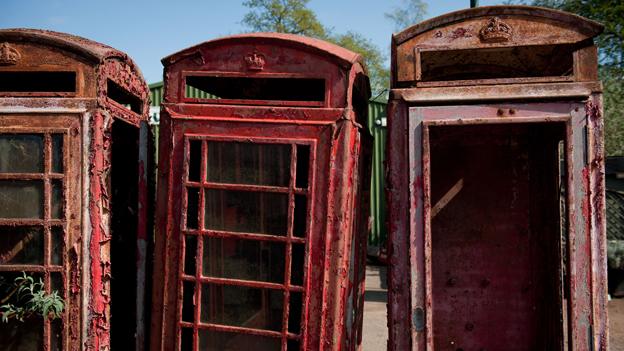
- Published2 October 2014
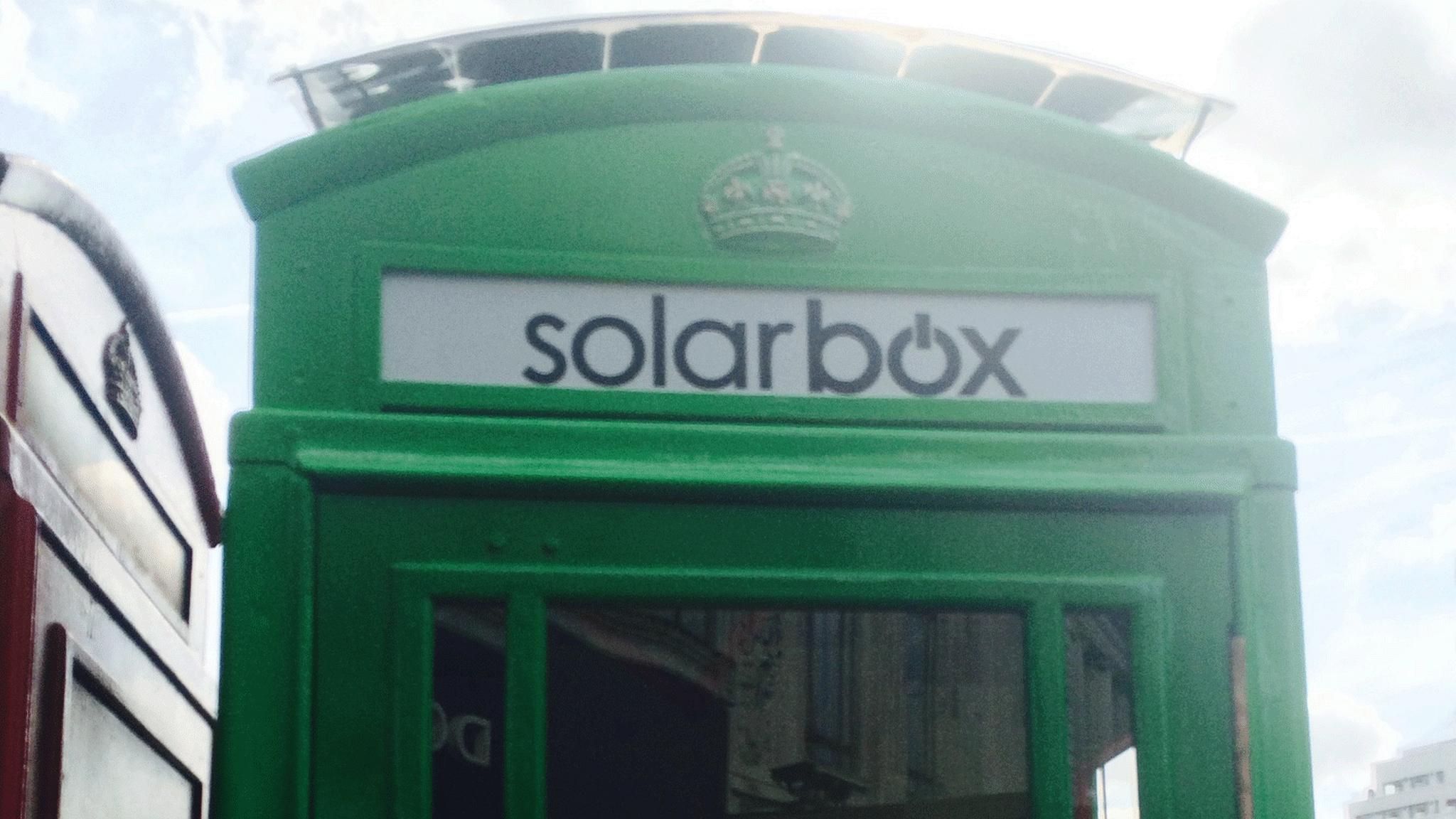
- Published7 February 2014
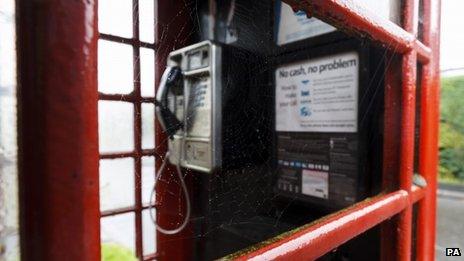
- Published15 June 2013
